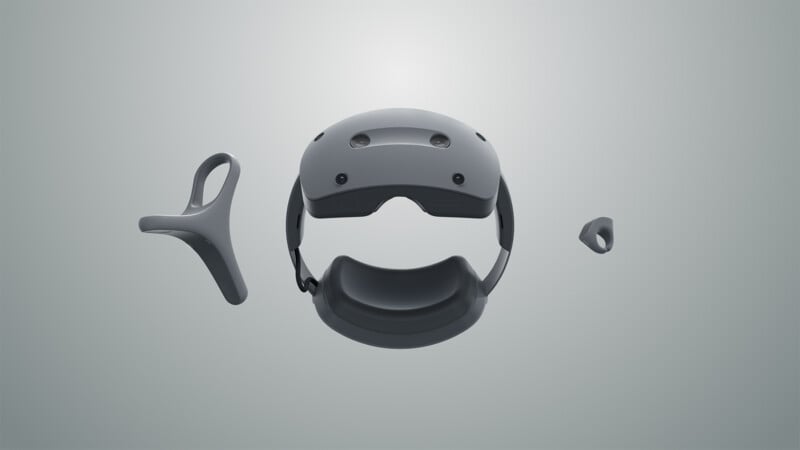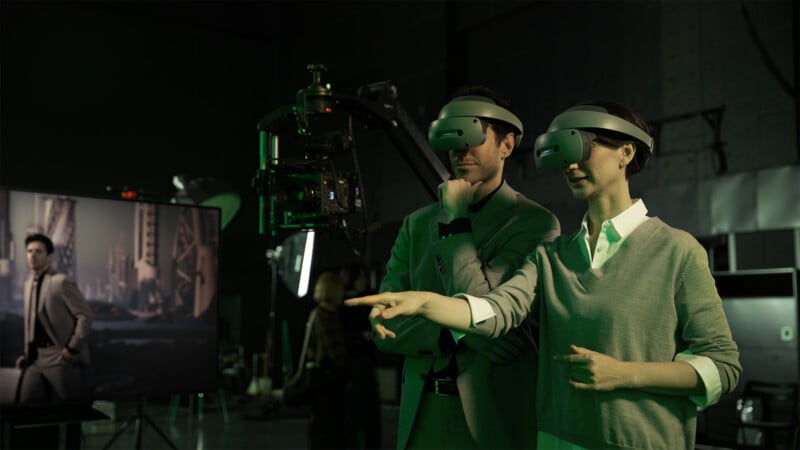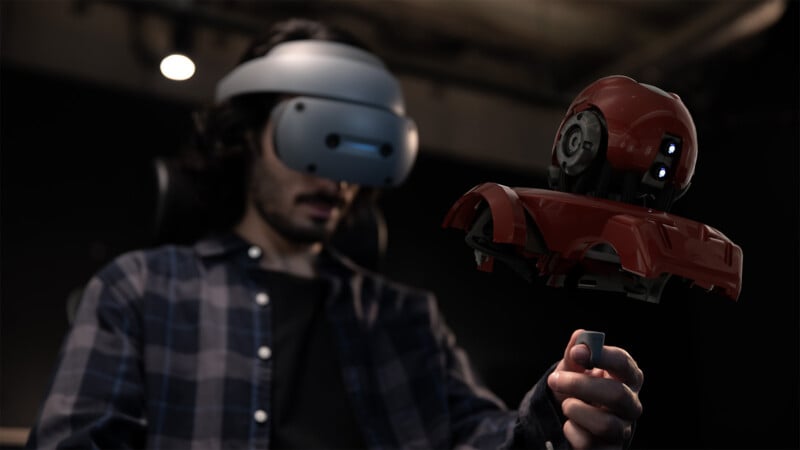![]()
CES is in full swing, with announcements popping out right and left. A regular participant at CES, Sony has announced a mixed-reality headset explicitly built for spatial content creators.
The Sony XR HMD is the tech giant’s take on a mixed-reality headset. It includes an “XR head-mounted display equipped with high-quality 4K OLED Microdisplays and video see-through function, and a pair of controllers optimized for intuitive interaction with 3D objects and precise pointing,” according to Sony.

The headset uses Sony’s proprietary rendering technology, which “enables real-time, high-definition and realistic rendering of textures of 3D objects and facial expressions of human characters,” Sony says. Thanks to six cameras and sensors, it offers video see-through functionality with spatial recognition. The system will not only allow users to see real-scale 3D models in an Extended Reality (XR) environment but also to create, modify, and manipulate 3D models in it.
The display features 1.3-type OLED Microdisplays with 4K resolution and a color gamut that covers up to 96 percent of DCI-P3. That will allow creators to achieve excellent color accuracy and consistency, a must for professionals. 3D modeling requires lots of processing power, which doesn’t seem possible for a compact wearable. But, the XR HMD supports split rendering, “which distributes the rendering load between computers and the head-mounted display, the system is capable of stable and high-definition rendering of large-size 3D models,” Sony explains.

Sony collaborated with Qualcomm Technologies, Inc. for the headset and is one of the first to utilize the Snapdragon XR2+ Gen 2 platform. This powerful processor allows for the superb image quality of the 4K OLED Microdisplays. Plus, the “on-chip AI enables enhanced user and space tracking for seamless XR experiences, merging physical and digital spaces for easy navigation and intuitive interaction within the XR creative spaces,” Sony promises.
Sony says it designed the headset with comfort and stability in mind, which is necessary for extended use. One feature that seems particularly useful is the ability to flip up the display portion so creatives can easily navigate both physical and virtual spaces without taking the device all the way off.

Beyond the head-mounted displays, the Sony XR HMD also includes two different controllers. The ring controller allows users to manipulate objects in virtual space. The pointing controller, as the name implies, allows for accurate and stable pointing in those virtual spaces. The pointing controller also features shape and button layouts designed for precise operation. Sony designed the pointing controller for the dominant hand and the ring for the other hand, allowing users to utilize other controllers and keyboards while wearing the display.
The Sony system will allow integration with third-party 3D creation applications. In fact, the company says in the press release that it is seeking collaboration with 3D production software developers in both the entertainment and industrial design fields. To kick things off, Sony partnered with Siemens “to bring innovative immersive engineering capabilities to the manufacturing industry, through integration with the new NX™ Immersive Designer software, a product engineering solution from the Siemens Xcelerator portfolio of industry software,” according to Sony.
A video shows the Sony headset being used to design components of race cars, which is a pretty logical (and cool) application of this technology. The system as a whole is more tailored to creative professionals than the Apple Vision Pro headset, which is geared towards general productivity and entertainment.
Sony’s announcement quickly followed Apple finally releasing the pre-order and availability dates of the Apple Vision Pro mixed-reality headset. The Sony XR HMD headset is still in the development phase, so there aren’t many details available. But Sony says that it will be available later this year.
